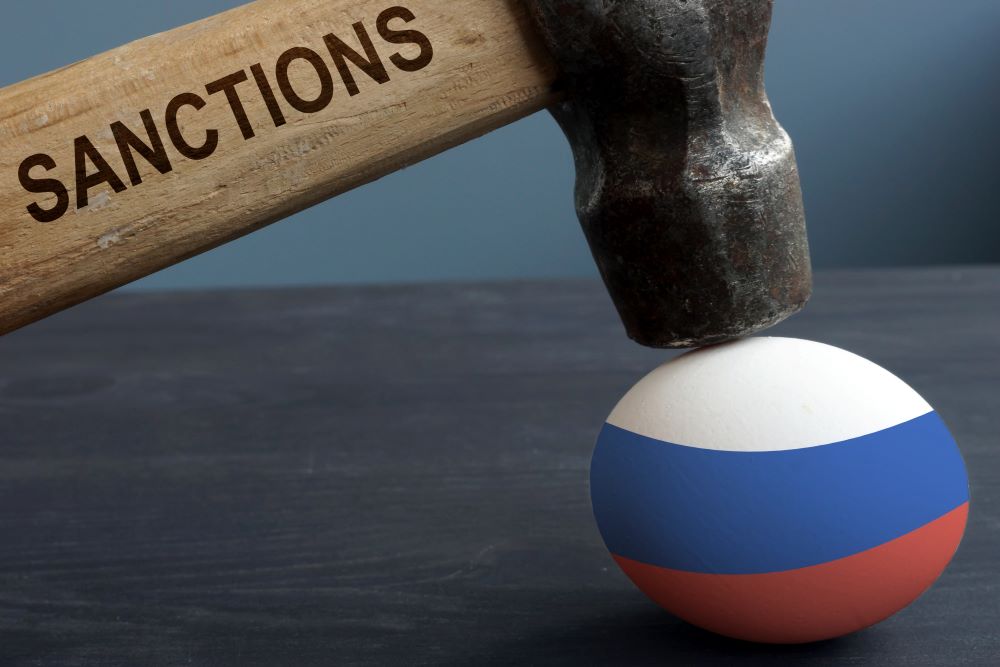
The European Union is revising its sanctions on Russia to ease the trade of food and fertilisers by allowing the unfreezing of some bank funds.
According to Reuters, under proposed changes to the current regime, EU nations will be able to unfreeze assets of Russian banks, such as: VTB, Sovcombank, Novikombank, Otkritie FC Bank, VEB, Promsvyazbank, and Bank Rossiya.
However, the assets of Russia’s largest bank Sberbank will be frozen with the exception of resources needed for food trade.
Under the proposals, the EU also plans to facilitate food exports from Russian ports, which traders had stopped servicing after the introduction of sanctions, despite the measures explicitly exempting food exports.
New sanctions
The EU is further proposing new sanctions targeting Russian gold, introducing trade restrictions on machinery, and adding more than 50 people and entities to the sanctions list, reports Bloomberg.
Gold exports by Russia’s elite have increased as a way to avoid western sanctions: the EU gold ban follows a similar move by the G7.
Gold block
The Guardian reports EU high representative for foreign policy, Josep Borrell, as stating that the ban on Russian gold was the most important measure of the latest plan, which is focused largely on “improving the implementation of the already existing sanctions”.
Its latest measures have been nicknamed the ‘six and a half package’, in a sign of the limited appetite for further sanctions against Russia after previous six rounds of measures.
Grain deal
In other news relating to the food crisis, Ukraine and Russia are close to agreeing a deal to secure the safe passage of grain through the Black Sea ports, reports the FT.
There are 22 million tonnes of wheat, corn and other products trapped on Ukraine’s coast, and the expected deal will see Russia and Ukraine monitoring ships at two control centres.
Negotiators from the two countries met last week in Istanbul, alongside representatives from the UN.
The parties will meet again this week, reports Euronews.



